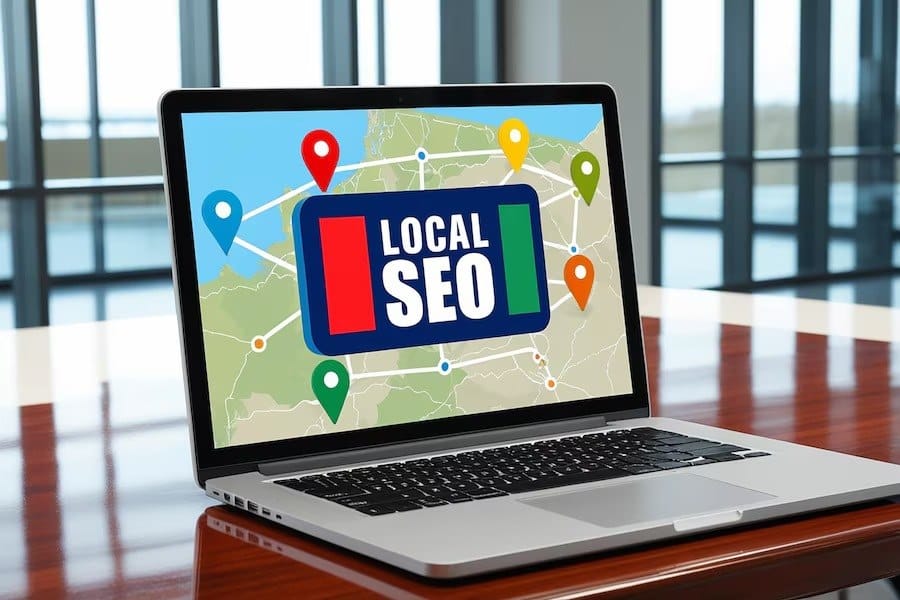Table of Contents
Understanding Explicit vs. Implicit Searches: The Key to Dominating Local SEO
Local SEO is an essential aspect of modern digital marketing. It helps businesses reach local audiences and drive targeted leads. Within the realm of local SEO, understanding the difference between explicit and implicit searches is paramount. These two search types have distinct characteristics that can significantly impact your search strategy. In this comprehensive guide, we will explore the nuances between explicit and implicit searches, their relevance, and how to harness their potential to enhance your local SEO efforts.
Explicit vs. Implicit Search in Local SEO: Unveiling the Differences
Explicit and implicit searches are two distinct search types that users employ when seeking information or solutions online. Let’s delve into their differences:
Explicit Searches
Explicit searches involve specific queries that leave little room for interpretation. These searches often contain keywords that directly convey the user’s intent and location. Examples include phrases like “best sushi restaurant in New York,” “emergency plumber in London,” or “iPhone repair shop near me.”
Key Characteristics:
- Highly specific and location-oriented.
- Strong commercial intent; users are likely looking to make a purchase or take immediate action.
- Valuable for businesses offering local services or products.
Implicit Searches
Implicit searches, on the other hand, are more general and open-ended. Users typically conduct implicit searches when they seek information, answers, or inspiration. Examples include queries like “How to bake a cake,” “benefits of organic gardening,” or “latest fashion trends.”
Key Characteristics:
- Broader and less location-focused.
- Users may not have an immediate intention to make a local purchase.
- Valuable for establishing authority and nurturing users through the customer journey.
Why Implicit and Explicit Searches Matter
Understanding the significance of implicit and explicit searches is essential for local SEO success. Here’s why these search types matter:
1. Targeting User Intent
User intent lies at the heart of SEO. Recognizing whether a user is conducting an implicit or explicit search allows you to align your content and strategy with their needs. Explicit searches cater to users actively seeking local solutions, while implicit searches serve those looking for information or guidance.
2. Conversion Opportunities
Explicit searches often yield higher conversion rates since users are closer to making a purchase decision. By optimizing for explicit keywords, businesses can maximize their chances of converting searchers into customers. Implicit searches may not lead to immediate conversions but contribute to building trust and authority.
3. Comprehensive Content Strategy
Incorporating both implicit and explicit search terms into your content strategy broadens your appeal. While explicit keywords attract transactional users, implicit keywords help educate and nurture users who are higher up the conversion funnel. This comprehensive approach positions your business as a valuable resource.
4. Competitive Advantage
Many businesses focus primarily on explicit searches, leaving implicit search opportunities untapped. By recognizing the value of implicit searches and optimizing for them, you can gain a competitive edge in your local market. This strategy can help you stand out from competitors vying for the same explicit keywords.
Identifying Keywords to Dominate: A Strategic Approach
Identifying keywords that your business can dominate in the local SEO landscape requires a strategic approach. Here’s how to leverage the explicit vs. implicit search distinction effectively:
1. Keyword Research
Commence your local SEO journey with comprehensive keyword research. Explore both explicit and implicit keywords relevant to your business and location. Utilize keyword research tools like Google Keyword Planner, SEMrush, or Ahrefs to discover high-potential keywords with reasonable competition levels.
2. Competitor Analysis
Analyze your competitors’ SEO strategies to pinpoint gaps in their approach, particularly in terms of implicit searches. By identifying areas where your competitors are underserving user intent, you can create content that offers superior value.
3. Content Creation
Create high-quality, informative content that caters to implicit search queries related to your industry, products, or services. Additionally, develop location-specific content that incorporates explicit keywords, ensuring your website ranks well for local searches.
4. On-Page Optimization
Optimize your website for both explicit and implicit searches by strategically incorporating relevant keywords into meta tags, headers, and content. User-friendly site structure and navigation make it easier for users to find information related to their queries.
5. User Experience
Enhance the user experience on your website, with a particular focus on mobile responsiveness, page loading speed, and navigation. A positive user experience can lead to higher search rankings and better engagement, especially for mobile users on the go.
6. Local SEO Factors
Don’t neglect crucial local SEO elements such as Google My Business (GMB) listings, local citations, and customer reviews. Encourage satisfied customers to leave reviews and ratings, bolstering your local credibility.
The Power of Share of Local Voice (SoLV)
Share of Local Voice (SoLV) is a metric that gauges your visibility and competitiveness in local search results. It assesses the proportion of clicks and impressions your business receives compared to competitors. Here’s how SoLV can bolster your local SEO strategy:
1. Competitor Performance Monitoring
SoLV enables you to monitor your business’s performance relative to competitors in local search results. By tracking changes in your SoLV over time, you can identify areas where your business may be gaining ground or losing traction.
2. Strategy Adjustment
If your SoLV data indicates that your share of voice is lower than that of competitors for specific keywords or locations, it’s time to reassess your strategy. Consider intensifying your efforts in those areas, such as creating more targeted content, enhancing your website’s SEO, or optimizing your local business listings.
3. Growth Opportunities
SoLV can unveil growth opportunities in your local market. If you notice keywords or locations where your SoLV is lower but has high potential, prioritize them in your strategy. Invest in content creation, link building, and local optimization to bolster your visibility and competitiveness.
4. Building Authority
Consistently monitoring and improving your SoLV can help you build authority in your niche and local market. As your SoLV increases, you’ll gain more visibility and trust among local customers, resulting in a stronger online presence and increased lead generation.
Practical Implementation for Local SEO Dominance
Now that you’ve grasped the nuances of explicit vs. implicit searches and the significance of SoLV, it’s time to translate this knowledge into practical actions. Here are steps to dominate local SEO effectively:
1. Comprehensive Keyword Strategy
Combine explicit and implicit keywords in your SEO strategy to cater to both informational seekers and potential customers. Continuously update your keyword list based on shifts in search trends and user behavior.
2. Content Creation
Develop high-quality, informative content that addresses implicit search queries, establishes your expertise, and guides users toward conversion. Ensure your content is optimized for local SEO and includes explicit keywords where relevant.
3. Local Optimization
Optimize your Google My Business listing with accurate and up-to-date information, including images, reviews, and contact details. Consistently monitor and respond to customer reviews to build trust and improve your SoLV.
4. Technical SEO
Regularly audit and optimize your website’s technical aspects, such as site speed, mobile-friendliness, and schema markup. Address any issues that could hinder your website’s performance in search results.
5. Link Building
Foster high-quality, relevant backlinks to your website from authoritative sources within your industry and location. Prioritize links that add genuine value to your site rather than chasing quantity.
6. Social Media and Online Presence
Maintain an active and engaging presence on social media platforms relevant to your business. Utilize social media to share your content, engage with local communities, and build brand awareness.
7. Analytics and Tracking
Continuously monitor your website’s performance using tools like Google Analytics and Google Search Console. Keep a close eye on your SoLV and adapt your strategy based on the insights you gather.
8. Adapt and Evolve
Remember that SEO is an ongoing process. Be ready to adapt and evolve your strategy as search algorithms and user behavior evolve. Stay informed about industry trends and algorithm updates to ensure your approach remains effective.
Mastering Local SEO: A Comprehensive Guide
In today’s competitive digital landscape, local SEO is essential for businesses looking to attract customers within their geographic area. By understanding the nuances of local search and implementing effective strategies, you can significantly boost your online visibility and drive local traffic to your website.
HITS Web SEO Write: Your Partner in Local SEO Success
HITS Web SEO Write is a leading digital marketing agency that specializes in helping businesses dominate local search. Our team of experts will work closely with you to develop and implement a comprehensive local SEO strategy tailored to your specific needs. We offer a range of services, including:
- Local Keyword Research: Identifying relevant keywords that local customers are searching for.
- Google My Business Optimization: Optimizing your Google My Business listing to increase visibility and attract customers.
- Local Citation Building: Creating citations across various online directories to improve your local search rankings.
- Local Content Marketing: Creating high-quality, location-specific content to engage your target audience.
By partnering with HITS Web SEO Write, you can unlock the full potential of local SEO and achieve sustainable growth for your business.




